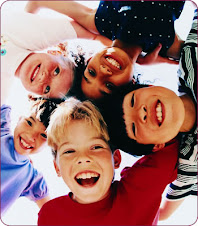I've been looking at a remarkable website: a sort of classified section for prospective adoptive parents. There is a lot of repetition in their little blurbs. Of course there is regular emphasis placed on the "loving home" that the family can provide, but also all the letters are direct appeals to the biological parents. I tend to think of the adoption process as almost always handled through an agency of some sort, but this showed prospective parents advertising directly to biological parents.
The website, Adopting.com, also features child listings, with a sort of CraigsList-type format and little bonuses typed by some children like "New," "Reduced Fee!" or "Grant Available!" The children are primarily from Haiti and Eastern Europe. Looking at an individual child's profile, I'm reminded of the profiles you can find at animal shelters as well. This "little guy," for instance, has won the hearts of many. There is basic medical info (HIV, syphilis, and TB tests) like with pets, and there is a bit of a story for each child. There is real practical reason for this kind of presentation, but I cannot dismiss that this is a market of children.
Also, there is heavy emphasis on the children being in need (but not too much), about their being in good spirits, and about their being brave. Constant reference is made to their smiling. This article talks about how smiling children or infants are seen as healthier and more adoptable. In several instances, I noticed in the pictures that the oldest children smiled the broadest, even if they had suffered considerably. Like these brothers, aged 2, 6, and 8. The oldest brother is smiling most broadly. It is certainly possible that that is a very happy little boy. It is also possible that he understands to some extent that he needs to sell himself to provide a home for himself and his two younger brothers. The adoption agency hasn't missed the difference. They assure prospective parents that the two-year-old, Michael, "is a happy boy, just apparently not in the mood for a photo."
I don't like to think of the adoption market in purely economic terms, because I think that's a reductive analytical lens. At the same time, though, there are striking parallels. The idea of "damaged goods" is still there--those children with special needs, physical, developmental, behavioral, etc. The age of children contributes to this idea. An older child is like an older animal; if the adoptive family doesn't get to see the new family member in the "cutest" stage, the parents may feel gypped.
Adoption, like other systems, has different markets and different avenues for tracking down the "right" pick or product. My Nanny (adoptive Grandma) found out about my mom through her brother, the doctor who delivered my mom. It was a different era in adoption; there was probably significantly less paperwork and screening across the board. However, it was also one of those instances in which the number of hands who passed along the baby was greatly reduced from comparable scenarios in large adoption agencies. It was a different market.
Wednesday, April 28, 2010
Subscribe to:
Post Comments (Atom)

It's so sad that children are still available to be looked at and hand picked today! To know that a child's picture is on the web, and they don't have a parent to say no! and protect their child's rights. But that is precisely the reason the child's picture is there, so that a parent will hopefully adopt and protect the child. I feel like adoption is definitely still a market in many parts of the world, but hopefully one day we will grow out of that!
ReplyDeleteThe descriptions are the scariest parts, because they mean the prospective parents are searching for the "best model" possible. I understand that today's adoption process is VERY difficult to navigate, but maybe that's for a reason--it tries to weed out the cold-feet people.
ReplyDeleteThese sort of websites make me think about those adults who tried having children first. What would they do if they could have had children? Would they be satisfied without the characteristics they're searching for on these websites? I ask because it makes me think they are less willing to love whatever children they adopt. Do these adopted children require less love and endurance than biological children?